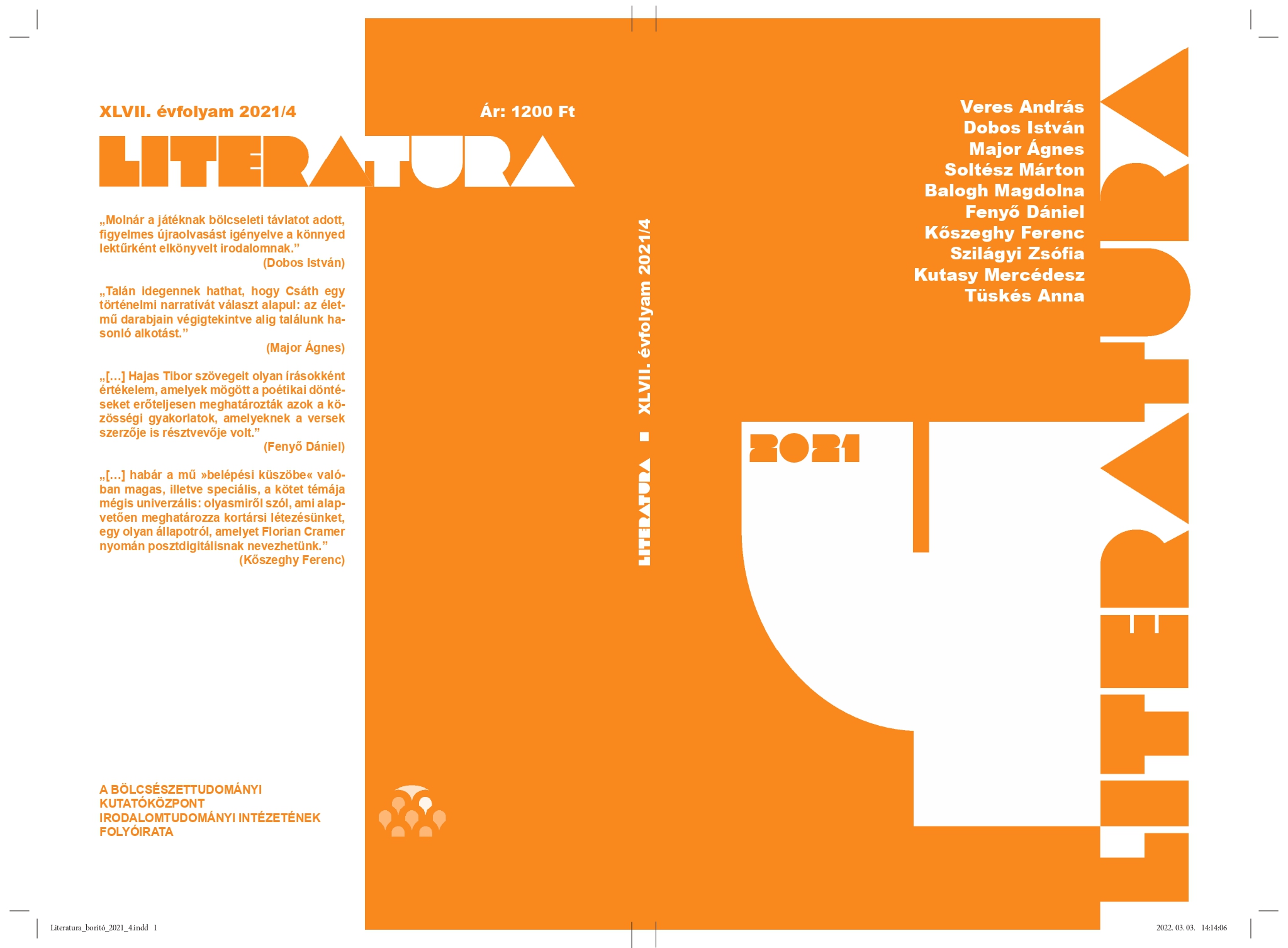Anekdota és színmű: műfaji határátlépések
Játék és bölcselet
Absztrakt
Anecdote and Play: Crossing Genre Boundaries
Play and Philosoph
The study suggests that in Ferenc Molnár’s play The Game in the Castle, the staged and narrated versions of the performance together form a blended genre in which humor is complemented by a philosophical perspective. In the foreground of the play is a rehearsal process of an operetta about to be performed. The story of the play is inextricably intertwined with the real-life love story that takes place in the castle. The castle is not only a place to stay, but also an auditorium and a stage. A natural gateway between life and art is opened in the play, infinitely crossing the boundary between the real and the fictional, personality and role, true and false. The play calls into question whether referential reality can be identified. Molnár’s play presents both the performance of the story and the story of the performance. This poetic experiment was inspired by the self-reflexive variety of anecdotal narrative, in which the storyteller also enacts the performance itself to enhance the effect on the reader. Molnár’s work is constantly interpreting itself: it is literally about creating artificial illusions. Molnár’s theatre is linked to the aesthetics of crossing boundaries, as it experiments without pause to cross the boundaries (art and life, auditorium and stage) that emerged at the end of the 18th century.



